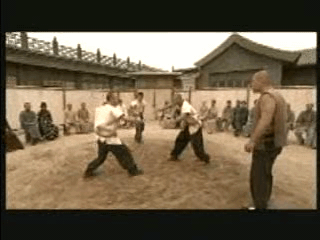This is something I've considered for a long time, and a recent thread made me think of it.
When I spar in the dojo or in a tournament (I no longer do, actually, due to heart condition), I do not make plans. I do not think to myself "If he does X, I will do Y," for example. I do not strategize. I just let things happen as they happen. I react. Sometimes I anticipate, but not that often (he threw two low kicks to sucker me into blocking low, now he's going to throw a high kick).
However, quite a few of my dojomates do plan, strategize, and use specific techniques that they've decided ahead of time to use. Even to details like "I'm going to hit him in the patch three times with my left hand and then kick him with a side kick."
Do you strategize and plan when sparring? Are you thinking about what techniques you're going to throw, or do you just go with the flow?
I'm not claiming how I do it is right or wrong; it's just how I do it. I'm not the world's greatest fighter, but I do mostly OK. I feel far more confident in my ability to defend myself against an untrained attacker or a brawler than against one of my highly-skilled dojomates, but that's OK. We can't all be champions. We can all get better.
When I spar in the dojo or in a tournament (I no longer do, actually, due to heart condition), I do not make plans. I do not think to myself "If he does X, I will do Y," for example. I do not strategize. I just let things happen as they happen. I react. Sometimes I anticipate, but not that often (he threw two low kicks to sucker me into blocking low, now he's going to throw a high kick).
However, quite a few of my dojomates do plan, strategize, and use specific techniques that they've decided ahead of time to use. Even to details like "I'm going to hit him in the patch three times with my left hand and then kick him with a side kick."
Do you strategize and plan when sparring? Are you thinking about what techniques you're going to throw, or do you just go with the flow?
I'm not claiming how I do it is right or wrong; it's just how I do it. I'm not the world's greatest fighter, but I do mostly OK. I feel far more confident in my ability to defend myself against an untrained attacker or a brawler than against one of my highly-skilled dojomates, but that's OK. We can't all be champions. We can all get better.

